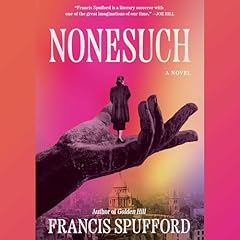
The Upswing
How America Came Together a Century Ago and How We Can Do It Again
No se pudo agregar al carrito
Solo puedes tener X títulos en el carrito para realizar el pago.
Add to Cart failed.
Por favor prueba de nuevo más tarde
Error al Agregar a Lista de Deseos.
Por favor prueba de nuevo más tarde
Error al eliminar de la lista de deseos.
Por favor prueba de nuevo más tarde
Error al añadir a tu biblioteca
Por favor intenta de nuevo
Error al seguir el podcast
Intenta nuevamente
Error al dejar de seguir el podcast
Intenta nuevamente
 Exclusivo para miembros Prime: ¿Nuevo en Audible? Obtén 2 audiolibros gratis con tu prueba.
Exclusivo para miembros Prime: ¿Nuevo en Audible? Obtén 2 audiolibros gratis con tu prueba.
Elige 1 audiolibro al mes de nuestra inigualable colección.
Acceso ilimitado a nuestro catálogo de más de 150,000 audiolibros y podcasts.
Accede a ofertas y descuentos exclusivos.
Premium Plus se renueva automáticamente por $14.95 al mes después de 30 días. Cancela en cualquier momento.
Compra ahora por $20.24
-
Narrado por:
-
Arthur Morey
Deep and accelerating inequality and the wealth gap; unprecedented political polarization and partisan division; vitriolic public discourse; a fraying social fabric; public and private narcissism—Americans today seem to agree on only one thing: This is the worst of times.
But we’ve been here before. During the Gilded Age of the late 1800s, America was highly individualistic, starkly unequal, fiercely polarized, and deeply fragmented, just as it is today. However, as the 20th century opened, America became—slowly, unevenly, but steadily—more egalitarian, more cooperative, more generous; a society on the upswing, more focused on our responsibilities to one another and less focused on our narrower self-interest. Sometime during the 1960s, however, these trends reversed, leaving us in today’s disarray.
In a “magnificent and visionary book” (The New Republic) drawing on his inimitable combination of statistical analysis and storytelling, Robert Putnam analyzes a remarkable confluence of trends that brought us from an “I” society to a “We” society and then back again. He draws on inspiring lessons for our time from an earlier era, when a dedicated group of reformers righted the ship, putting us on a path to becoming a society once again based on community and civic renewal. This is Putnam’s most “remarkable” (Science) work yet, a fitting capstone to a brilliant career.
Los oyentes también disfrutaron:




















Reseñas de la Crítica
"Narrator Arthur Morey delivers statistical concepts with insightful tonal variations that enhance comprehension and maintain the listener's interest. Robert Putnam posits that the last 120 years of economic history have followed an "I-we-I" trajectory. The Gilded Age was marked by massive inequality and exploitation of workers. Then the New Deal and civil rights shared gains with the masses. Now we're in a new Gilded Age, with a return to inequality and individualism. Morey's clear and appealing performance makes a compelling academic argument into something much more accessible. With droll humor and steady pacing he navigates listeners through evidence found in taxation, unions, education and the like, along with commentary on how unusual baby names and self-love might indicate something telling about our culture today."
Las personas que vieron esto también vieron:


















The writing was an intellectual creating a conclusion then digging up the evidence from nothing. One I-We-I occurrence does not make a pattern. He violate the "Correlation does not mean Causation" on nearly every agreement. Finally, his solution to the next great movement from a bunch of Self Absorbed Gen Z Cry Babies miraculously surrendering their self absorbed tripe for a selfless Progressive Utopia is the funniest joke I've heard this century.
Intellectual Horse S@:!
Se ha producido un error. Vuelve a intentarlo dentro de unos minutos.
Excellent
Se ha producido un error. Vuelve a intentarlo dentro de unos minutos.
In charting 125 years of American history where we have gone from an “I” society to a “We” society and then back to “I”, the authors examine how in economics, politics, culture, and society we have abandoned a more communitarian impulse for hyper individualism. But getting to WE again means not just looking ahead but looking back to how we’ve turned that curve before.
The Past is Prologue
Se ha producido un error. Vuelve a intentarlo dentro de unos minutos.
Foot off the Gas
Se ha producido un error. Vuelve a intentarlo dentro de unos minutos.
Interesting theory of 20th century American history
Se ha producido un error. Vuelve a intentarlo dentro de unos minutos.


